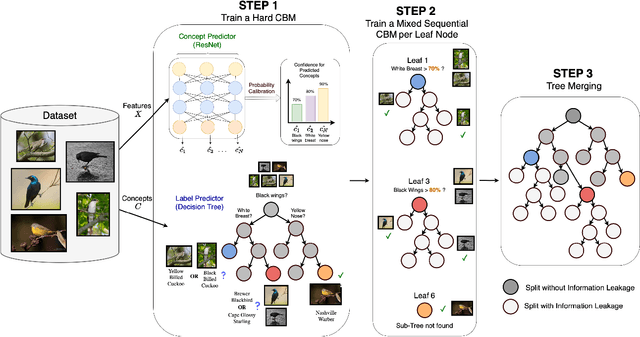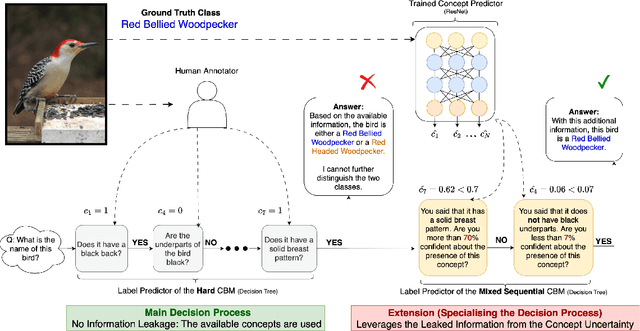Tree-Based Leakage Inspection and Control in Concept Bottleneck Models
Paper and Code
Oct 08, 2024



As AI models grow larger, the demand for accountability and interpretability has become increasingly critical for understanding their decision-making processes. Concept Bottleneck Models (CBMs) have gained attention for enhancing interpretability by mapping inputs to intermediate concepts before making final predictions. However, CBMs often suffer from information leakage, where additional input data, not captured by the concepts, is used to improve task performance, complicating the interpretation of downstream predictions. In this paper, we introduce a novel approach for training both joint and sequential CBMs that allows us to identify and control leakage using decision trees. Our method quantifies leakage by comparing the decision paths of hard CBMs with their soft, leaky counterparts. Specifically, we show that soft leaky CBMs extend the decision paths of hard CBMs, particularly in cases where concept information is incomplete. Using this insight, we develop a technique to better inspect and manage leakage, isolating the subsets of data most affected by this. Through synthetic and real-world experiments, we demonstrate that controlling leakage in this way not only improves task accuracy but also yields more informative and transparent explanations.
 Add to Chrome
Add to Chrome Add to Firefox
Add to Firefox Add to Edge
Add to Edge